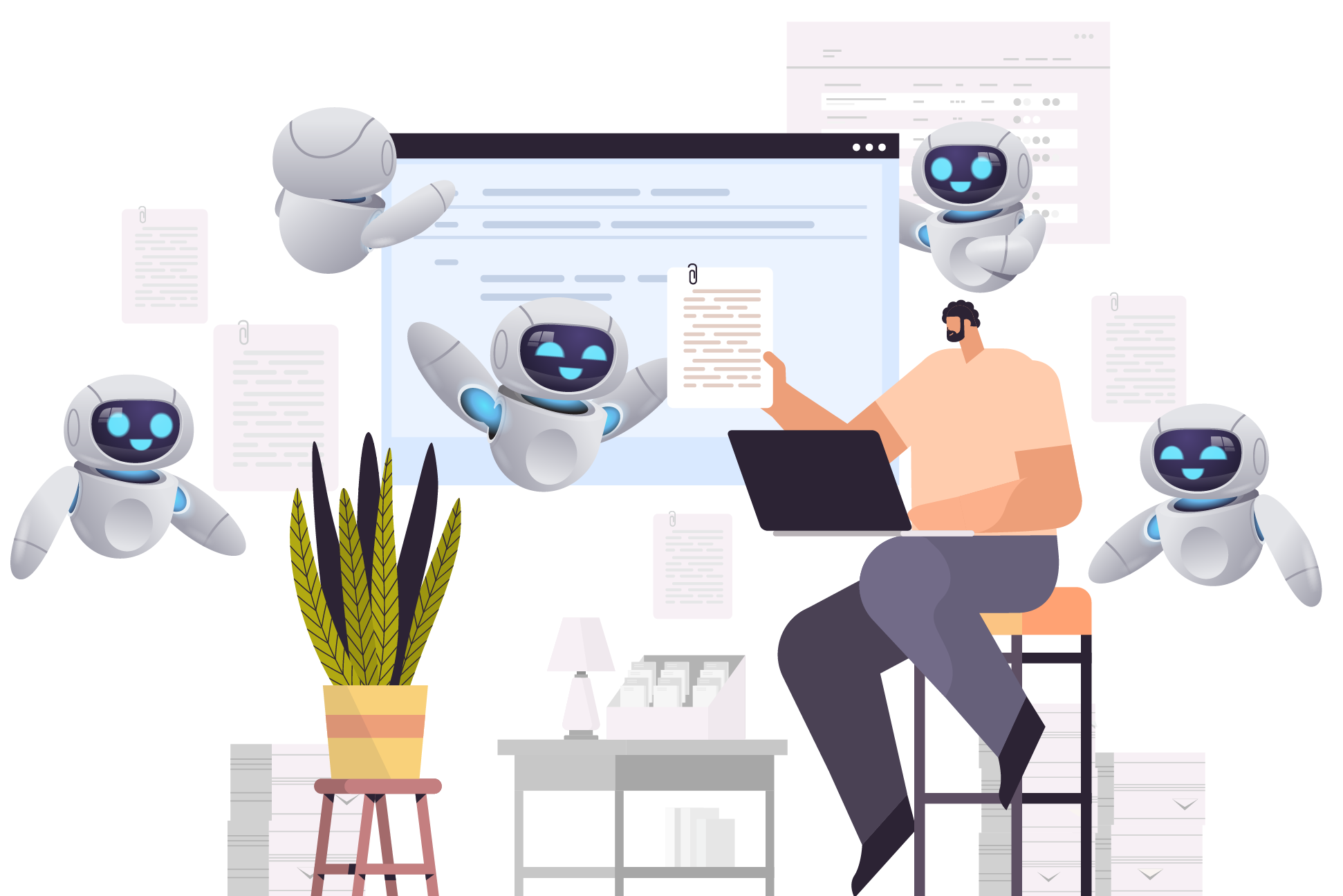In today’s dynamic work environment, the concept of employee experience has evolved into a crucial aspect of organizational success. For companies managing remote teams, this becomes even more critical. Enhancing employee experience isn’t just about improving productivity; it’s about creating an environment where employees feel valued, supported, and engaged.
Understanding Employee Experience
Employee experience encompasses every interaction an employee has with their organization. This includes the recruitment process, onboarding, daily interactions, professional development opportunities, and even the exit process. For remote teams, these interactions are predominantly digital, making it essential for companies to ensure a seamless and positive experience.
A positive employee experience can lead to higher engagement, productivity, and job satisfaction, while a negative experience can result in high turnover and low morale.
The Importance of Communication
Effective communication is the cornerstone of a positive employee experience. For remote teams, this means utilizing various communication tools to keep everyone connected and informed. Regular check-ins, virtual meetings, and collaborative platforms help bridge the gap that physical distance creates.
It’s about ensuring that employees feel heard and valued, regardless of their location. Clear and consistent communication helps in setting expectations, providing feedback, and fostering a sense of belonging among remote employees.
Remote teams face unique challenges when it comes to communication. The lack of face-to-face interaction can lead to misunderstandings and feelings of isolation. To combat this, companies should establish clear communication protocols and utilize a variety of communication tools.
Video conferencing, instant messaging, and project management software can help keep remote teams connected and aligned. Additionally, regular team meetings and one-on-one check-ins provide opportunities for employees to voice their concerns and stay engaged.
Fostering a Positive Culture
A positive organizational culture is integral to employee experience. This is even more important for remote teams, where the lack of physical interaction can sometimes lead to feelings of isolation. Companies need to foster a culture of inclusivity and support. This can be achieved through virtual team-building activities, celebrating achievements, and encouraging a sense of community. A strong company culture helps in building trust and collaboration among remote team members.
Creating a positive culture when building remote teams involves intentional efforts to make employees feel connected and appreciated. Virtual team-building activities, such as online games, virtual happy hours, and team challenges, can help foster camaraderie and strengthen relationships.
Celebrating achievements, both big and small, through virtual recognition programs or shout-outs during team meetings, reinforces a culture of appreciation. Encouraging open communication and providing platforms for employees to share their ideas and feedback also contribute to a positive remote work culture.
Providing the Right Tools
Technology plays a pivotal role in shaping the employee experience for remote teams. Providing employees with the right tools and resources to perform their tasks efficiently is crucial. This includes reliable communication platforms, project management tools, and access to necessary information. By investing in the right technology, companies can ensure that their remote employees are well-equipped to handle their responsibilities.
Investing in the right tools not only enhances productivity but also shows employees that the organization is committed to their success. Companies should regularly assess the tools and technologies they provide to ensure they meet the evolving needs of their remote teams.
Offering training and support for these tools helps employees use them effectively and reduces frustration. Additionally, ensuring that all employees have access to the same resources promotes fairness and equality within the team.
Emphasizing Work-Life Balance
Remote work offers flexibility, but it can also blur the lines between work and personal life. Promoting a healthy work-life balance is essential for maintaining employee well-being. Encouraging employees to take regular breaks, set clear boundaries, and prioritize self-care helps in preventing burnout and maintaining high levels of engagement. Companies should promote policies and practices that support work-life balance, such as flexible working hours and the option to take mental health days.
Maintaining work-life balance is a significant challenge for remote employees, who may find it difficult to disconnect from work. To address this, companies should encourage employees to establish a dedicated workspace and set specific work hours.
Providing guidelines on managing work-life balance and offering resources such as wellness programs and mental health support can also make a difference. Leaders should model healthy work-life balance behaviors and encourage their teams to do the same.
Continuous Feedback and Improvement
Feedback is vital for continuous improvement and enhancing employee experience. Regular feedback sessions provide employees with the opportunity to voice their concerns and suggestions. This not only helps in identifying areas of improvement but also makes employees feel valued and involved in the decision-making process. Constructive feedback helps employees understand their strengths and areas for development, contributing to their overall growth and satisfaction.
Creating a culture of feedback involves more than just annual performance reviews. Companies should implement regular check-ins, where managers provide feedback and discuss progress with their team members. This can be done through one-on-one meetings, virtual feedback forms, or 360-degree feedback tools.
Encouraging peer-to-peer feedback also promotes a collaborative environment where employees can learn from each other. By acting on feedback and making necessary changes, companies demonstrate their commitment to improving the employee experience.
Supporting Career Development
Career development is a significant aspect of employee experience. For remote teams, providing opportunities for growth and advancement can be challenging but not impossible. Companies should offer virtual training programs, mentorship opportunities, and clear career progression paths. This helps in keeping employees motivated and engaged, knowing that their personal and professional growth is being supported. Investing in employee development shows a long-term commitment to their success.
Supporting career development for remote employees involves creating accessible and inclusive learning opportunities. Virtual training programs, webinars, and online courses allow employees to develop new skills and stay current in their fields. Mentorship programs, where experienced employees guide and support newer team members, can also be highly beneficial.
Companies should clearly communicate career progression paths and provide regular updates on available opportunities for advancement. By prioritizing career development, companies can retain top talent and foster a culture of continuous learning.
Building Trust and Transparency
Trust and transparency are foundational elements of a positive employee experience. Remote work can sometimes create a sense of disconnect, making it essential for companies to build and maintain trust with their employees. Transparency in communication, decision-making, and company policies helps build trust and ensures that employees feel informed and involved. Leaders should be open about company goals, challenges, and successes, and encourage employees to share their thoughts and feedback.
Building trust in remote teams requires consistent and honest communication. Leaders should provide regular updates on company performance, strategic initiatives, and any changes that may impact employees. Transparency about expectations and responsibilities helps employees understand their role and how they contribute to the organization’s success.
Additionally, creating a safe space for employees to share their concerns and ideas fosters a culture of trust and collaboration. When employees feel trusted and informed, they are more likely to be engaged and committed to their work.
Promoting Diversity and Inclusion
Diversity and inclusion are critical components of a positive employee experience. For remote teams, promoting diversity and inclusion involves creating an environment where all employees feel valued and respected, regardless of their location.
Companies should implement policies and practices that support diversity and inclusion, such as diverse hiring practices, inclusive language, and providing equal opportunities for all employees. Celebrating diverse perspectives and backgrounds enriches the work environment and drives innovation.
Promoting diversity and inclusion in remote teams involves intentional efforts to ensure that all employees feel included and respected. Companies should provide training on unconscious bias and inclusive communication to help employees understand and appreciate different perspectives.
Creating employee resource groups and forums for discussing diversity and inclusion topics can also foster a sense of belonging. By prioritizing diversity and inclusion, companies can create a more dynamic and innovative work environment where all employees can thrive.
Measuring and Improving Employee Experience
Measuring employee experience is essential for understanding how well the organization is meeting the needs of its employees. Companies should use various tools and methods to assess employee experience, such as surveys, feedback forms, and performance metrics.
Regularly reviewing these metrics helps identify areas for improvement and track progress over time. By continuously monitoring and improving employee experience, companies can create a more supportive and engaging work environment.
Effective measurement of employee experience involves collecting both quantitative and qualitative data. Employee engagement surveys, pulse surveys, and feedback forms provide valuable insights into employee satisfaction and engagement levels. Analyzing this data helps identify trends and areas where improvements can be made.
Additionally, conducting exit interviews with departing employees can provide insights into potential issues and areas for improvement. By acting on this data and making necessary changes, companies can continuously enhance the employee experience and create a more positive work environment.
Final Thoughts
Enhancing employee experience is a strategic imperative for companies managing remote teams. By focusing on effective communication, fostering a positive culture, providing the right tools, emphasizing work-life balance, offering continuous feedback, supporting career development, building trust and transparency, promoting diversity and inclusion, and measuring and improving employee experience, companies can create a thriving remote work environment.
At Talenteum, we understand the unique challenges of managing remote teams and are committed to helping businesses create an exceptional employee experience. Investing in the employee experience not only enhances productivity and engagement but also contributes to the long-term success of the organization.




